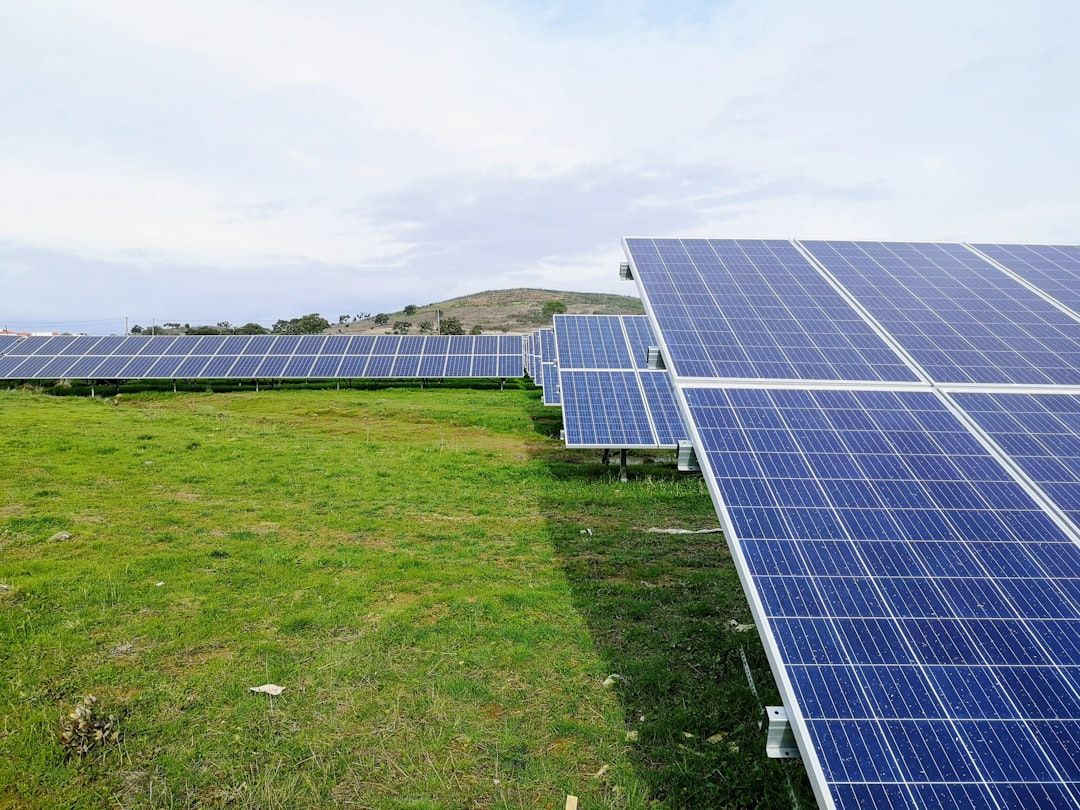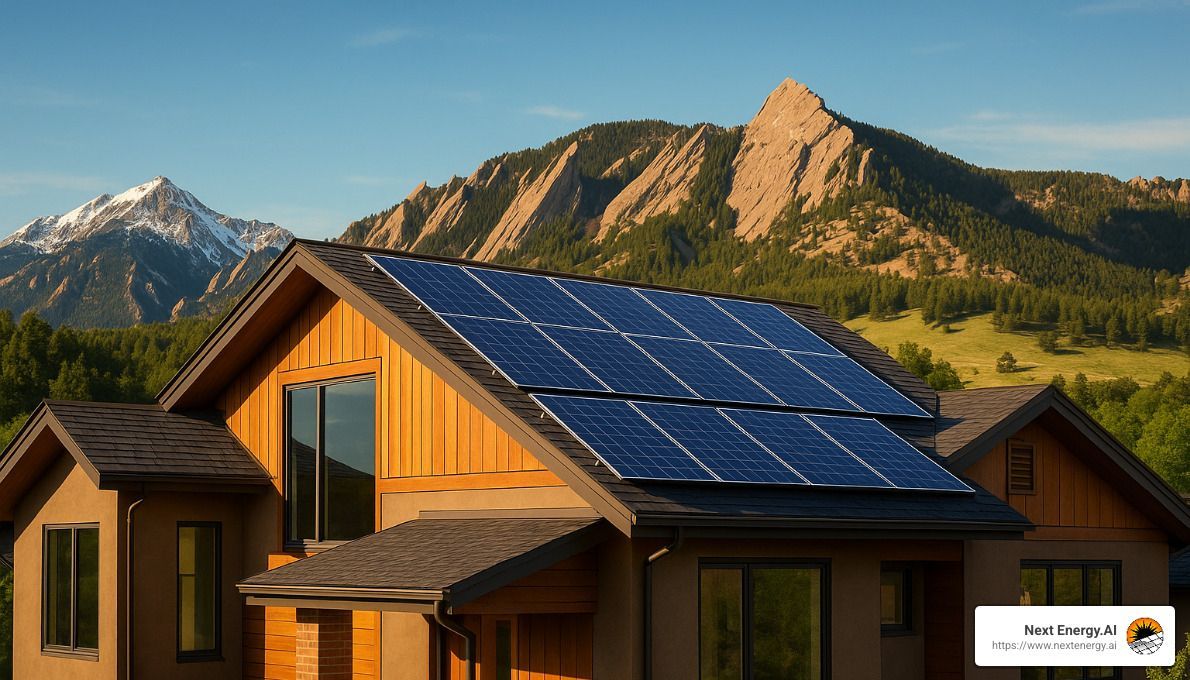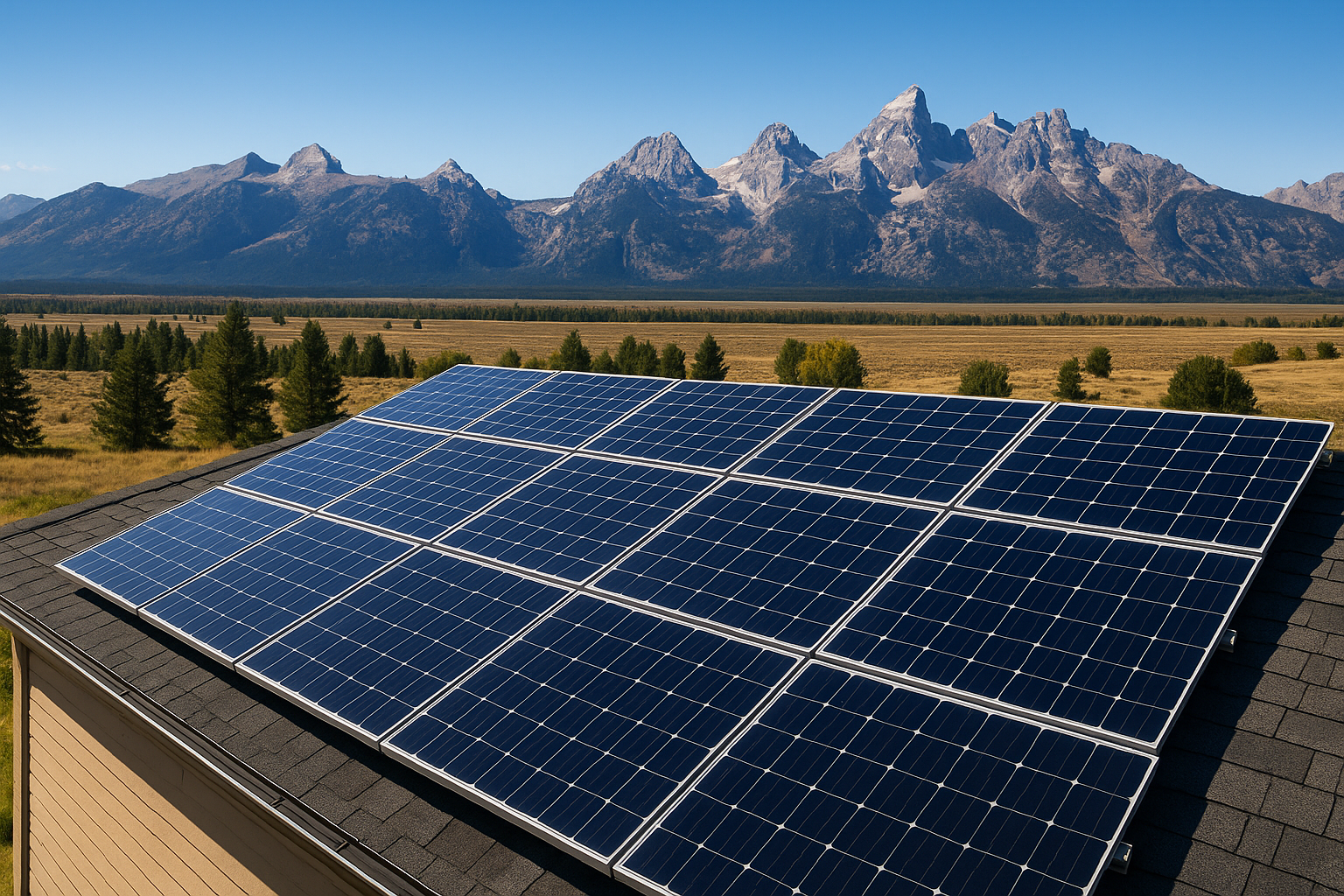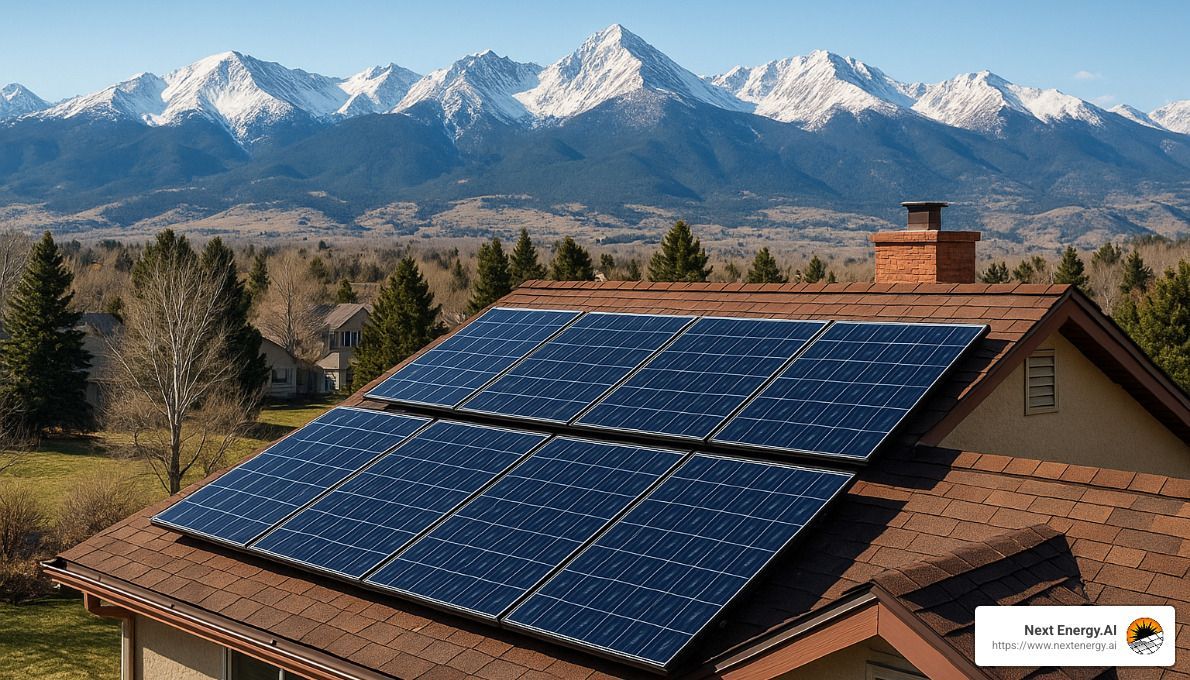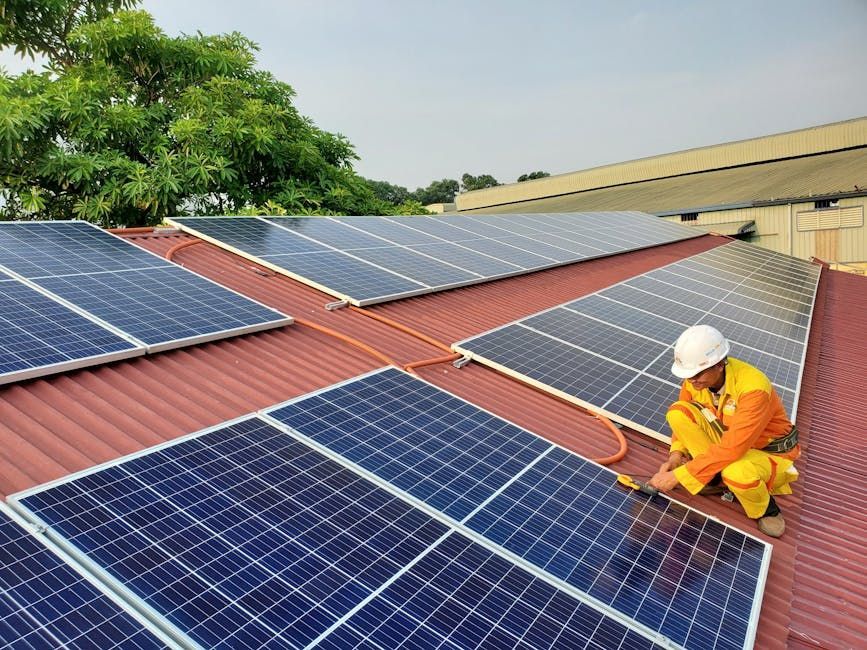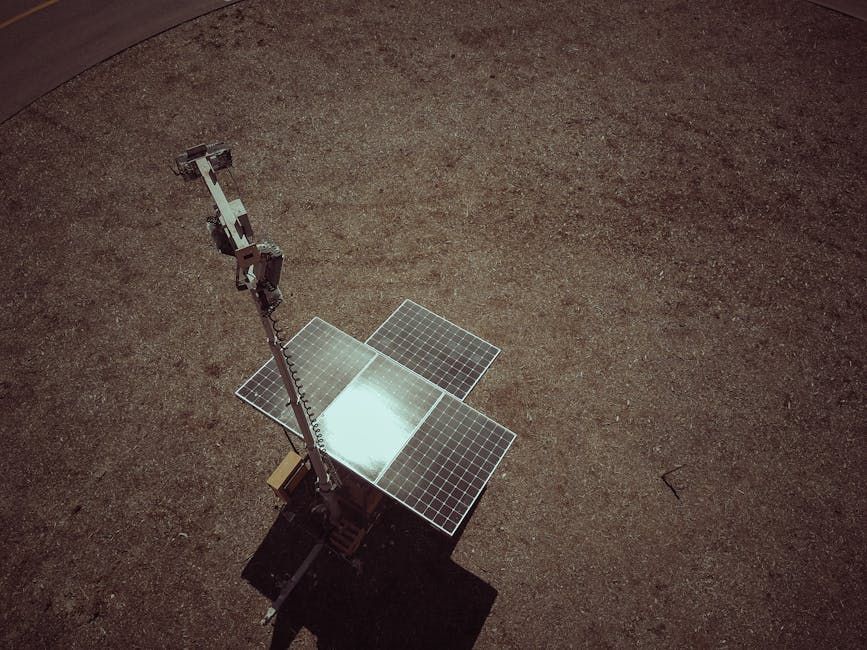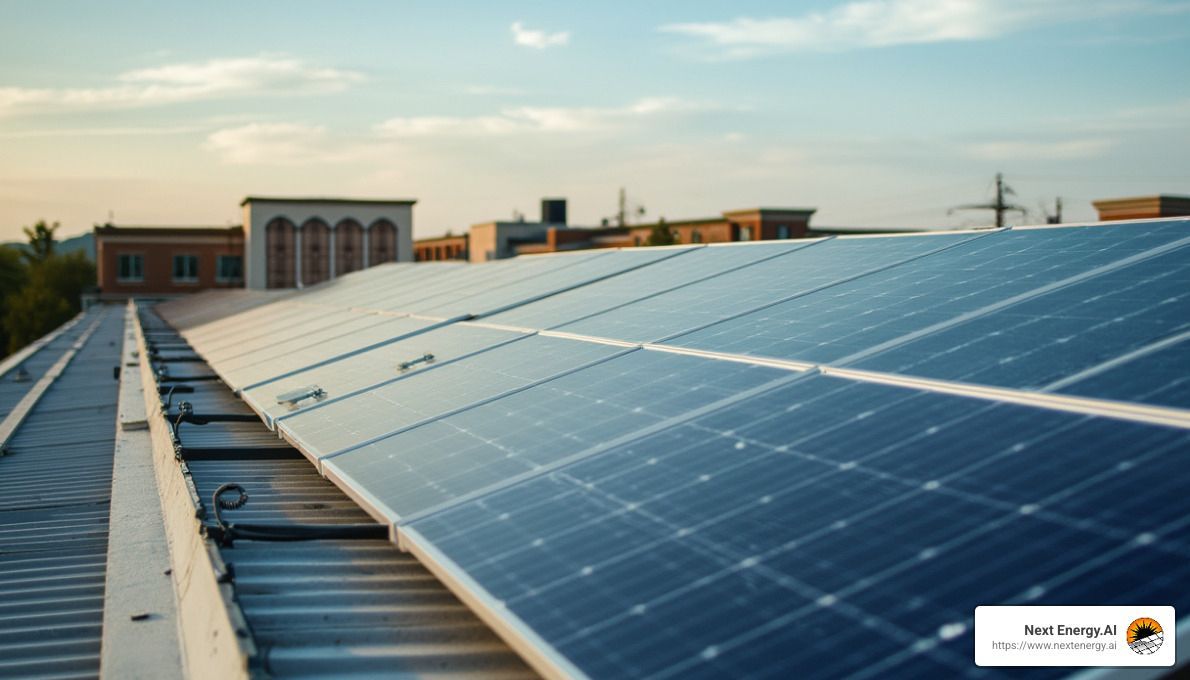Colorado Solar Installation: A Comprehensive Guide
Solar installation colorado offers homeowners a promising opportunity to harness the abundant sunshine in the state, cut down on electricity bills, and contribute to a cleaner environment. Colorado, boasting over 300 days of sunshine annually, positions itself as a prime location for solar energy production. This transition to solar is not just environmentally conscious but financially savvy, thanks to incentives like the federal tax credit that covers 30% of installation costs.
- Abundant Solar Potential: With plentiful sunshine, Colorado is ideal for efficient solar energy generation.
- Energy Transition: Shifting to solar helps reduce reliance on fossil fuels and contributes to the state’s vision of 100% clean energy by 2040.
- Financial Incentives: Programs like the Colorado Solar for All aim to make solar accessible to all residents, including low-income households.
I'm Spencer Gordon, CEO at Next Energy.AI with experience in solar installation colorado contexts. My work has focused on making solar solutions more accessible to homeowners, leveraging local expertise and innovation to promote sustainable energy use.
Benefits of Solar Installation in Colorado
Colorado is a solar paradise. With over 300 sunny days each year, it's one of the best places in the U.S. to install solar panels. This abundant sunshine means that your solar panels can generate a lot of electricity, helping you save significantly on energy bills.
Sunny Days
Colorado's climate is perfect for solar energy. The state enjoys more than 300 days of sunshine annually, which is more than enough to power your home efficiently. This high solar potential means that you can generate a substantial amount of electricity, reducing your reliance on the grid.
Energy Savings
Switching to solar can lead to substantial energy savings. By generating your own electricity, you can lower your utility bills and protect yourself from rising energy costs. Many homeowners experience a significant reduction in their monthly bills, and some even eliminate their electricity costs entirely.
Additionally, Colorado offers net metering, allowing homeowners to earn credits for excess energy produced by their solar systems. This can further offset your energy costs, making solar even more financially attractive.
Environmental Impact
Choosing solar energy is a powerful way to reduce your carbon footprint. Solar panels produce clean, renewable energy, which helps decrease reliance on fossil fuels and reduces greenhouse gas emissions. By installing solar panels, you're contributing to a healthier planet and supporting Colorado's goal of achieving 100% clean energy by 2040.
Moreover, solar energy helps improve air quality by reducing pollution from traditional energy sources. This means cleaner air for everyone, contributing to better overall public health.
In summary, solar installation in Colorado offers a trifecta of benefits: using the state's plentiful sunshine, saving money on energy bills, and making a positive impact on the environment. As more residents make the switch, Colorado moves closer to its clean energy goals, paving the way for a sustainable future.
Cost of Solar Installation in Colorado
When considering solar installation in Colorado, understanding the costs involved is crucial. Let's break it down into the average cost, federal tax credit, and local incentives.
Average Cost
In Colorado, the average cost of installing a 5-kilowatt solar panel system is approximately $14,089 before incentives. This price can vary based on several factors, including the size of the system and the type of equipment used.
Here's a quick look at the cost breakdown for different system sizes:
System SizeSystem CostSystem Cost (after ITC)3 kW$8,453$5,9175 kW$14,089$9,86210 kW$28,178$19,724
These costs are averages, and your final price may differ based on specific needs and conditions.
Federal Tax Credit
The federal government offers a significant incentive through the residential clean energy credit. This credit allows you to deduct 30% of your solar installation costs from your federal taxes. There's no cap on this credit, making it a substantial saving for any homeowner investing in solar energy.
To claim this credit, you need to fill out IRS form 5695 when you file your federal income tax.
Local Incentives
Beyond federal incentives, Colorado provides additional local incentives to make solar energy more affordable:
- Net Metering: This allows you to earn credits for excess electricity your solar system generates and sends back to the grid. Most major utility companies in Colorado offer net metering, though policies can vary.
- Property Tax Exemption: In Colorado, the value added to your property by solar panels is exempt from property taxes. This means you won't pay extra taxes on the increased value of your home due to solar installation.
- State-Specific Programs: Colorado also has various state-specific programs that offer rebates and incentives. It's worth checking with local government offices or energy companies to see what might be available in your area.
In conclusion, while the initial cost of solar installation in Colorado might seem high, the available federal and local incentives can significantly reduce your expenses. By taking advantage of these programs, solar energy becomes not only an environmentally friendly choice but also a financially smart one.
Solar Installation Colorado: Choosing the Right System
Selecting the right solar system for your home in Colorado is a critical step in your solar journey. It involves understanding system size, equipment quality, and financing options. Let's break it down.
System Size
The size of your solar system directly impacts both its cost and the amount of energy it produces. The key is to find a balance that meets your energy needs without overspending.
- Assess Your Energy Usage: Start by reviewing your past energy bills to understand your average monthly consumption. This will help you determine the kW size of the system you need.
- Consider Future Needs: If you plan on adding electric vehicles or other energy-intensive appliances, factor these into your calculations to ensure your system is future-proof.
- Roof Space and Sunlight: The amount of available roof space and daily sunlight hours in Colorado also play a role in determining the ideal system size. Colorado's ample sunshine is a great asset, but make sure your roof is suitable for maximum sun exposure.
Equipment Quality
Not all solar panels and inverters are created equal. Investing in high-quality equipment can lead to better efficiency and longevity.
- Panel Efficiency: Look for panels with high efficiency ratings, as these will convert more sunlight into electricity and give you more energy output per square foot.
- Durability and Warranty: Choose products from reputable manufacturers that offer robust warranties. A 25-year warranty is a good benchmark for panels.
- Inverter Options: Inverters are crucial as they convert the DC power generated by the panels into AC power for your home. Consider the benefits of microinverters versus string inverters based on your specific setup.
Financing Options
Financing your solar installation is a significant consideration, and there are multiple options available to suit different financial situations.
- Solar Loans: Many homeowners opt for solar loans, which allow for manageable monthly payments. These loans often come with competitive interest rates, especially if you have good credit.
- Leasing and Power Purchase Agreements (PPAs): These options let you enjoy the benefits of solar without the upfront cost. However, they may not qualify for certain incentives and rebates, so weigh the pros and cons carefully.
- Home Equity Loans: Using a home equity loan or line of credit can be an effective way to finance your solar system, often with lower interest rates than unsecured loans.
- Cash Purchase: If you have the means, buying your system outright can offer the highest return on investment, as you'll benefit fully from tax credits and energy savings.
Choosing the right solar installation in Colorado involves careful consideration of these factors. With the right system, you can maximize your energy savings and contribute to a more sustainable future.
Top Solar Incentives and Rebates in Colorado
When considering solar installation in Colorado, understanding the available incentives and rebates is crucial. These financial benefits can significantly reduce the cost of going solar and improve your return on investment.
Federal Tax Credit
The federal government's Residential Clean Energy Credit is a major incentive for homeowners. This tax credit covers 30% of the cost of installing a solar system. It's a straightforward way to lower your federal tax bill, making solar more affordable. The Inflation Reduction Act extended this credit through 2032, providing a long-term opportunity for savings.
RENU Loan
Colorado also offers the Residential Energy Upgrade (RENU) Loan program. This state-backed financing option provides low-interest loans for energy efficiency and renewable energy improvements, including solar installations. It's designed to help homeowners overcome the barrier of upfront costs, making the transition to solar more accessible.
Net Metering
Net metering is another valuable incentive available in Colorado. Most utilities, like Colorado Springs Utilities, offer programs where they buy back excess energy your solar system generates. However, it's important to note that this is often at a fraction of the retail rate, which can extend the payback period. Despite this, net metering remains a beneficial way to offset energy costs and maximize the utility of your solar panels.
By leveraging these incentives, you can significantly reduce the financial burden of solar installation. Whether through federal tax credits, state loans, or net metering, Colorado provides multiple pathways to make solar energy a viable option for your home.
Frequently Asked Questions about Solar Installation in Colorado
How much does it cost to install solar in Colorado?
The cost of solar installation in Colorado varies, but on average, you'll pay around $14,089 for a 5 kW system before any incentives. Prices typically range from $11,976 to $16,202 depending on the specifics of your home and the equipment chosen.
The good news? The federal tax credit can lower this price by 30%, bringing the average cost down to about $9,862. This makes solar more affordable and accessible to many homeowners.
Is it worth getting solar in Colorado?
Absolutely, solar is a smart investment in Colorado. The state enjoys plenty of sunny days, which maximizes the potential of solar panels to generate electricity. With the combination of federal tax credits and local incentives, the initial investment can be offset significantly.
In the long run, a 5 kW system can save you approximately $31,209 over 25 years. This includes savings on electricity bills and the benefits from incentives. Plus, with net metering, you can earn credits for any excess energy your system produces, further increasing your savings.
Does Colorado have a rebate for solar?
While Colorado doesn't offer a direct state rebate for solar, there are plenty of local incentives and programs to help reduce costs. The Residential Energy Upgrade (RENU) Loan provides low-interest financing for solar installations, easing the upfront financial burden.
Additionally, many utility companies in Colorado participate in net metering, allowing you to earn credits for excess electricity generated by your solar system. This can help reduce your energy bills over time, making solar even more cost-effective.
By taking advantage of these programs and incentives, you can make solar installation a financially viable and environmentally friendly choice for your home.
Conclusion
Choosing to install solar panels in Colorado is not just a smart financial decision—it's a step towards a sustainable future. At Next Energy.AI, we are committed to making this transition as seamless and beneficial as possible for you.
Our AI-improved solar solutions set us apart. By integrating advanced artificial intelligence, we transform traditional solar panels into intelligent energy management systems. This means your solar system doesn't just generate power; it learns from your energy usage patterns, optimizing efficiency and maximizing savings.
Why Next Energy.AI?
- Advanced AI Technology: Our systems are designed to adapt and optimize, ensuring you get the most out of every ray of sunshine.
- Local Expertise: We're based in Loveland, Colorado, and serve communities across Northern Colorado and Southern Wyoming. We understand the unique energy needs of our region.
- Commitment to Sustainability: We're not just installing solar panels; we're helping build a sustainable future. Our solutions are designed to reduce your carbon footprint while saving you money.
If you're ready to take control of your energy future, we're here to help. Explore our services and see how we can transform your home with smart solar solutions.
Find more about our Boulder solar solutions and join us in using the power of the sun for a brighter tomorrow.
